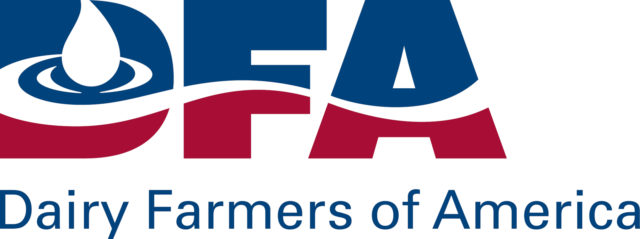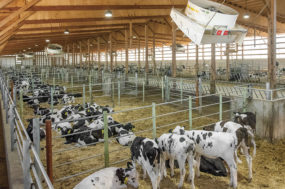Recent headlines of low milk prices, milk dumping, the upcoming farm bill and Federal Milk Marketing Order (FMMO) hearings have prompted many questions on the current state and potential future of the U.S. dairy industry. Amid these concerns, it is easy to overlook the role of FMMO hearings and the implications of the changes they bring about.
As the market continues to evolve, so does demand for dairy products, processing costs, trade environments and consumer preferences. These changes have sparked proposals to modernize and update the FMMO system. FMMOs regulate the terms of trade for milk, with the aim of doing so in an orderly and representative manner. The FMMO program was established in the 1930s and has been amended several times over the years to reflect the changing needs and conditions of the dairy industry. Current proposals for modernization have been submitted to the USDA. Proposed reforms include:
- Updating make allowances in the component price formulas
- Discontinuing the use of barrel cheese in the protein component price formula
- Returning to the “higher-of” Class I Mover
- Updating the milk component factors for protein, other solids and nonfat solids in the Class III and Class IV skim milk price formulas
- Extension of 30-day USDA product price reporting limit to 45 days on forward-priced sales on nonfat dry milk and dry buttermilk to target more export sales
Federal orders are responsible for regulating milk handlers. A handler refers to a raw milk processor or a cooperative. Handlers come in two categories: fluid milk handlers dealing with beverage milk and manufacturing handlers working with products like cheese, ice cream and butter. While fluid milk handlers are mandated to be regulated by a FMMO, manufacturing handlers usually participate when it is financially advantageous for them to do so. Orders have three primary objectives: establish minimum uniform prices, ensure proper payments and provide market information.
FMMOs establish minimum uniform prices through a three-step process involving collecting dairy commodity prices, determining handler prices based on end use and setting minimum uniform prices through pooling. The FMMO system categorizes milk into four classes: Class I for fluid milk, Class II for milk used in soft products, Class III for milk used in hard cheese and Class IV for milk used in butter and powdered dry milk products. These orders establish monthly uniform prices by classifying milk by its end use and then distributing the combined value of milk (pooling) among farmers whose milk falls within each category.
Every FMMO guarantees precise and prompt payments to farmers by conducting audits. FMMO dairy scientists authenticate tests for milk components. This ensures farmers receive payment based on the correct levels of solids in their milk.
Various sectors including industry, academia and government agencies rely on dairy-related data collected by the FMMO program. This program's weekly, monthly and yearly data publications provide comprehensive and timely dairy information not available from any other source.
The USDA provides a process for amending one or more provisions of an existing federal order. When amending provisions that do not directly affect milk prices, the USDA may elect to use informal rule-making procedures. This is not the case for the current hearing, as 40 proposals were submitted with 21 of those directly impacting the uniform pricing formulas; consequently, the 12-step formal rule-making process is underway. The public hearing, which began on Aug. 23 in Carmel, Indiana, marked the start of hearing testimony. Testimony on the subjects of milk composition, survey commodity products, Class III and Class IV formula factors, base Class I skim milk price, and Class I and Class II differentials will continue until the presiding administrative law judge determines it is complete.
There exists a clear distinction between public hearings and legislation, such as the farm bill. As you may remember from the Schoolhouse Rock video "I’m Just a Bill" your grade school civics teacher showed, the legislative process involves a lawmaker in the House or Senate proposing a bill, committee review, the House and Senate voting, and a presidential decision. Hearings are events designed to gather input and feedback on proposed changes to an already existing piece of legislation (Table 1). In the case of federal orders, these proposed changes are ultimately voted on and approved by producers.

As FMMO hearings proceed, it is important to keep in mind the possible implications of any change. History has repeatedly shown us the many unintended consequences of policy changes and market interventions. Market events like COVID-19 and rapidly changing dairy markets poke holes in existing rules and legislation and quickly highlight shortcomings. The dairy industry has undergone many historic transformations, each with its own degree of unpredictability. Market extremes are likely to endure and escalate well into the future. Taking a forward-looking approach to proposed changes may help limit unintended consequences of any proposal. I encourage producers to think critically about the potential effects of any changes and how they may affect your business.
One of the best ways for dairy farmers to engage in the FMMO hearing process is to communicate thoughts and concerns with your representative organizations, such as your dairy processing cooperative or other member organizations. These organizations can help you understand the issues, provide information and resources and represent your voice in the hearings. If you choose to personally participate in the process, dairy farmers are invited and encouraged to testify any time in person at the hearing, or virtually on Fridays by registering for one of the 10 15-minute slots available each Friday beginning Sept. 1. The time slots for each Friday the hearing is in session are opened on Monday of that week and are filled on a first-come, first-served basis. To find out more about the federal order hearing, watch them live and sign up to testify, visit the FMMO Pricing Formula Hearing website.
By being informed, involved, raising concerns and asking questions, you can influence changes that may directly impact your revenue stream. Federal order hearings are intended to ensure fair representation and participation from industry stakeholders. These hearings serve as a platform for dairy farmers, producer groups, cooperative associations and other interested parties to present their views, data and evidence.







